Filter by
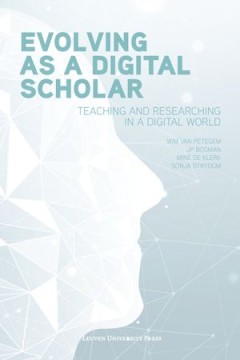
Evolving as a Digital Scholar: Teaching and Researching in a Digital World
How to become digitally proficient as a teacher and researcher What does it take to become a digitally agile scholar? This manual explains how academics can comfortably navigate the digital world of today and tomorrow. It foregrounds three key domains of digital agility: getting involved in research, education and (community) service, mobilising (digital) skills on various levels, and acting…
- Edition
- -
- ISBN/ISSN
- 9789461663900
- Collation
- -
- Series Title
- -
- Call Number
- 302.231 EVO e
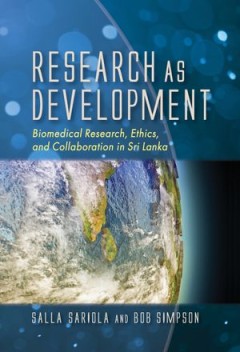
Research as Development: Biomedical Research, Ethics, and Collaboration in Sr…
In Research as Development, Salla Sariola and Bob Simpson show how international collaboration operates in a setting that is typically portrayed as "resource-poor" and "scientifically lagging." Based on their long-term fieldwork in Sri Lanka, Sariola and Simpson bring into clear ethnographic focus the ways international scientific collaborations feature prominently in the pursuit of global heal…
- Edition
- -
- ISBN/ISSN
- 9781501733628
- Collation
- -
- Series Title
- -
- Call Number
- -
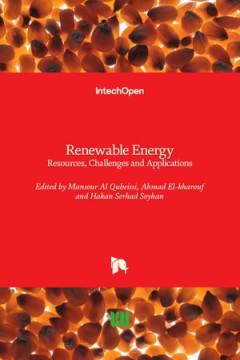
Renewable Energy: Resources, Challenges and Applications
The demand for secure, affordable and clean energy is a priority call to humanity. Challenges associated with conventional energy resources, such as depletion of fossil fuels, high costs and associated greenhouse gas emissions, have stimulated interests in renewable energy resources. For instance, there have been clear gaps and rushed thoughts about replacing fossil-fuel driven engines with ele…
- Edition
- -
- ISBN/ISSN
- 9781839621550
- Collation
- -
- Series Title
- -
- Call Number
- -
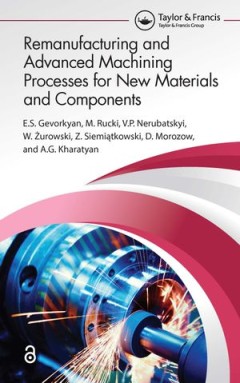
Remanufacturing and Advanced Machining Processes for New Materials and Compon…
Remanufacturing and Advanced Machining Processes for Materials and Components presents current and emerging techniques for machining of new materials and restoration of components, as well as surface engineering methods aimed at prolonging the life of industrial systems. It examines contemporary machining processes for new materials, methods of protection and restoration of components, and smar…
- Edition
- -
- ISBN/ISSN
- 9781000528671
- Collation
- -
- Series Title
- -
- Call Number
- -
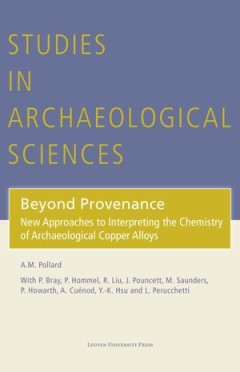
Beyond Provenance
Human intentionality in chemical patterns in Bronze Age metals For the last 180 years, scientists have been attempting to determine the ‘provenance’ (geological source) of the copper used in Bronze Age artefacts. However, despite advances in analytical technologies, the theoretical approach has remained virtually unchanged over this period, with the interpretative methodology only changing …
- Edition
- -
- ISBN/ISSN
- 9789461662668
- Collation
- -
- Series Title
- -
- Call Number
- 930.1 POL b
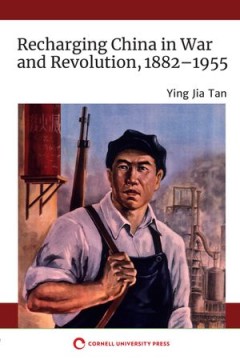
Recharging China in War and Revolution, 1882–1955
In Recharging China in War and Revolution, 1882–1955, Ying Jia Tan explores the fascinating politics of Chinese power consumption as electrical industries developed during seven decades of revolution and warfare. Tan traces this history from the textile-factory power shortages of the late Qing, through the struggle over China's electrical industries during its civil war, to the 1937 Japane…
- Edition
- -
- ISBN/ISSN
- 9781501758973
- Collation
- -
- Series Title
- -
- Call Number
- -
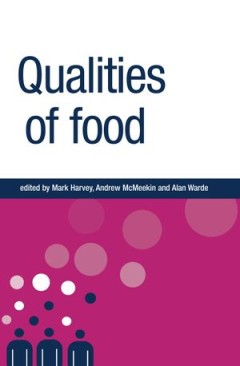
Qualities of food
This book addresses current controversial debates about food quality. What is it that makes people decide that food is of good, or alternatively of dubious, 'quality'? How food is produced, how it is prepared, how it tastes and in what circumstances it is consumed are all dimensions of its quality. Chapters address a number of intriguing questions: how do people make judgements about taste?; ho…
- Edition
- -
- ISBN/ISSN
- 9780719068546
- Collation
- -
- Series Title
- -
- Call Number
- -
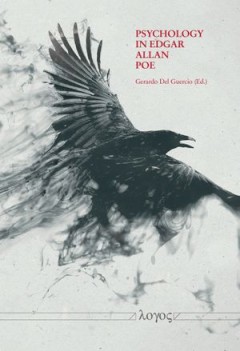
Psychology in Edgar Allan Poe
This collection offers six critical essays on the topic of psychology in Edgar Allan Poe. It came together as a response to a visible absence of this subject in recent scholarship. The volume presents Edgar Allan Poe as one of the pioneers in psychology, who often anticipated major theoretical trends and ideas in psychology in his incessant explorations of the relationship between behavior and …
- Edition
- -
- ISBN/ISSN
- 9783832549404
- Collation
- -
- Series Title
- -
- Call Number
- -
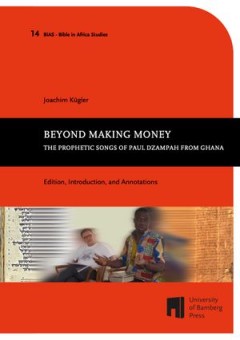
Beyond Making Money : The Prophetic Songs of Paul Dzampah from Ghana
This volume intends to give voice to one of the local agents of religious change in Africa by listening to the voice of Paul Dzampah, a Christian singer-songwriter in Ghana. Among the broad movement of new, post-modern Christianity in Africa the songs which are documented in this volume are kind of outstanding as the author never tried to establish his own church and never intended to make his …
- Edition
- -
- ISBN/ISSN
- 978-3-86309-244-3
- Collation
- -
- Series Title
- Bible in Africa Studies 14
- Call Number
- 230 KUG b
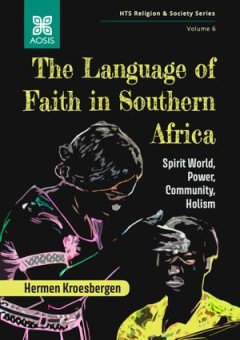
The Language of Faith in Southern Africa Spirit World, Power, Community, Holism
The aim of this book is to provide a way to do justice to an African language of faith. In systematic theology, anthropology and philosophy of religion, similar debates about how to interpret an African language of faith are ongoing. Trying to avoid the ‘othering’ discourses of past generations, scholars are careful to take seriously what people in Africa say without portraying people’s b…
- Edition
- -
- ISBN/ISSN
- 9781928396949
- Collation
- -
- Series Title
- -
- Call Number
- -
 Computer Science, Information & General Works
Computer Science, Information & General Works  Philosophy & Psychology
Philosophy & Psychology  Religion
Religion  Social Sciences
Social Sciences  Language
Language  Pure Science
Pure Science  Applied Sciences
Applied Sciences  Art & Recreation
Art & Recreation  Literature
Literature  History & Geography
History & Geography